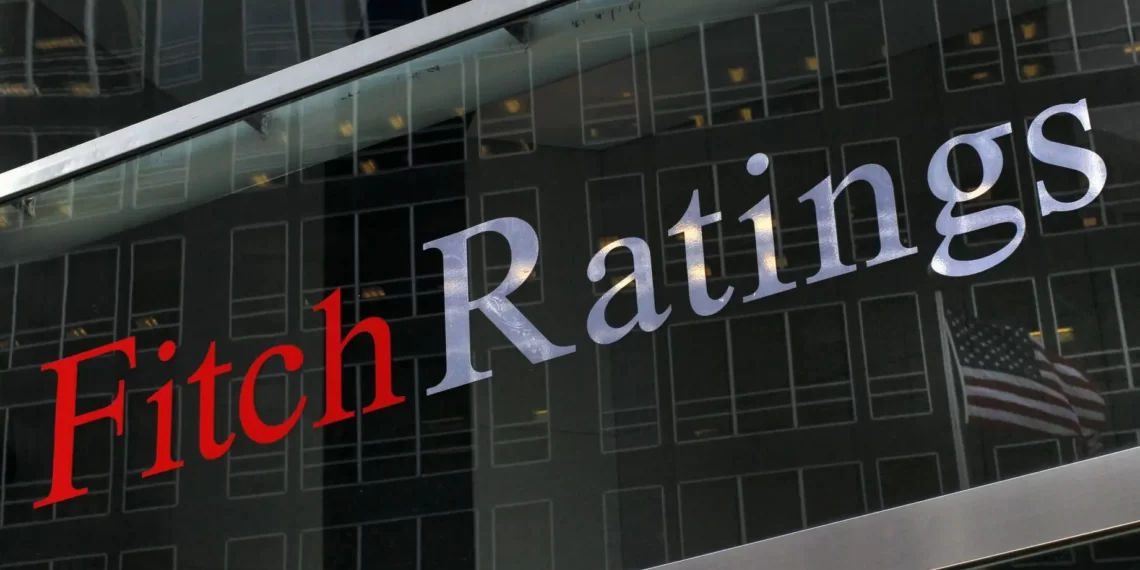Global ratings agency Fitch has issued a stark warning about the future of Ghana’s banking industry, cautioning that six banks are unlikely to achieve capital compliance through internal measures alone.
According to Fitch, these banks face a looming crisis that could force them into seeking capital injections, mergers, or outright acquisitions by stronger and better-capitalised financial institutions.
The development has sparked heated discussions across the financial market, with concerns about the impact on customers, investor confidence, and Ghana’s broader economic stability.
Fitch’s report highlighted that the six banks are grappling with weak capital buffers, which have left them unable to absorb shocks from Ghana’s ongoing economic restructuring. The primary source of strain has been the losses incurred on government bonds following the Domestic Debt Exchange Programme (DDEP). While most banks have managed to strengthen their capital adequacy ratios, these six remain vulnerable.
The rating agency further revealed that two of the undercapitalised institutions are state-owned banks, both of which have already received capital injections from the government. Despite this support, Fitch believes further recapitalisation will be required, though it may not materialise before the end of 2025.
The Numbers Behind the Crisis
At the end of February 2024, the Bank of Ghana disclosed that the sector’s capital adequacy ratio, excluding forbearance measures, had dropped to 8.7%. By the first half of 2025, this figure had rebounded significantly to 18.2%, demonstrating that most banks are now comfortably compliant with regulatory requirements.
However, Fitch’s analysis shows that the improvement is not universal. The six struggling banks remain outliers, unable to meet the capital benchmarks without outside intervention. This raises concerns about whether the regulator will allow them more time to recover or push for immediate structural reforms such as mergers and acquisitions.
Potential Scenarios: Mergers, Takeovers, or Forbearance
Fitch outlined three possible lifelines for the troubled banks: Capital Injections: Banks could receive additional funding either from shareholders, private investors, or in the case of state-owned banks, government bailouts.
Mergers or Acquisitions: Smaller, struggling banks may be merged with or acquired by larger, well-capitalised institutions to stabilise their operations and protect depositors.
Extended Forbearance: The Bank of Ghana could grant the banks more time to build up capital reserves through retained earnings, though this option is not without risks given the fragile economic environment.
Each of these pathways carries different implications for Ghana’s financial sector. While mergers and acquisitions could strengthen stability and efficiency, they may also lead to job losses and reduced competition. Extended forbearance, on the other hand, might buy time but could also expose the system to prolonged risk.
Implications for Customers and Investors
For ordinary Ghanaians, the news has sparked anxiety about the safety of their deposits. However, analysts have stressed that depositors remain protected under Ghana’s Deposit Protection Scheme and that the regulator’s priority is to safeguard public trust.
Investors, meanwhile, are closely watching the situation, as the outcome will have a significant impact on confidence in the banking sector. A well-managed resolution could enhance the system’s resilience, while missteps could trigger fresh instability.
Despite the challenges facing the six banks, Fitch’s outlook for the broader industry remains cautiously optimistic. The rebound in the sector’s capital adequacy ratio to 18.2% by mid-2025 is a clear sign that most banks are on a strong footing. This progress means that once the remaining 25% of bond-related losses are phased into regulatory capital by the end of 2025, the majority of banks will remain comfortably compliant.
Industry experts argue that the ongoing clean-up, though painful, could ultimately strengthen Ghana’s financial sector by ensuring that only the most resilient institutions survive. This would pave the way for a more stable, competitive, and sustainable banking industry capable of supporting long-term economic growth.
The Fitch warning has brought Ghana’s banking sector to a critical juncture. While six banks remain at risk of collapse without rescue deals, the sector as a whole is showing resilience. The coming months will be crucial as regulators, investors, and government stakeholders decide whether to pursue recapitalisations, mergers, or forbearance.
READ ALSO: MoMofest Launch at Bukom Dazzles With Discounts, Games & Big Wins



















